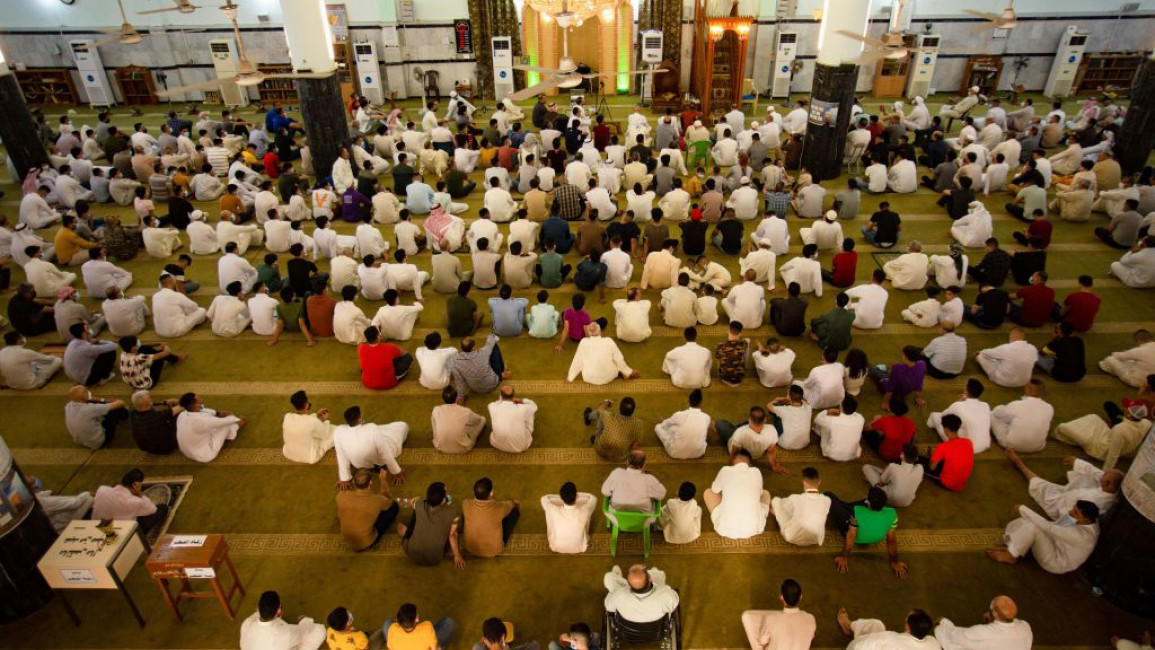As Iraq's Sunni and Kurdish communities mark Ramadan today, its Shia community waits for the next day
As the Sunni and Kurdish communities in Iraq mark the start of Ramadan today, 11 March, Iraq's Shia community, including those in neighbouring Iran, will begin fasting the following day.
The Kurdistan Regional Government (KRG) Ministry of Endowment and Religious Affairs and the Diwan of Sunni Endowments announced Monday as the first day of Ramadan, saying the crescent moon was spotted on Sunday night. However, the office of Grand Ayatollah Ali al-Sistani, the highest Shia authority in Iraq, published a calendar in which Tuesday has been identified as the beginning of Ramadan.
Officials claim to have spotted the crescent moon Sunday night in Saudi Arabia, home to the holiest sites in Islam, marking the start of the holy fasting month of Ramadan for many of the world's 1.8 billion Muslims.
The sacred month, which sees those observing abstain from food and water from sunrise to sunset, marks a period of religious reflection, family get-togethers, and giving across the Muslim world. Seeing the moon Sunday night means Monday is the first day of the fast.
The Diwan of Sunni Endowments on Monday refuted a statement on its behalf identifying Tuesday as the first of the holy month of Ramadan.
What adds to the controversy is that the Head of the Iraqi Fatwa House, Mehdi Al-Sumaidaie, said they could not spot the crescent moon, thus holding the head of the Sunni Endowment responsible, legally and religiously, for declaring Monday the first day of Ramadan.
The Sunni and Shia communities in Iraq have differing views on Islam, and the divide often emerges during the identification of the first day of Ramadan, Eid El-Fitr and Eid al-Adha. The driving force is often political: While the Sunnis, including the Kurds, follow the path of Saudi Arabia as per key religious dates and feasts, the Shia afollow Iran's decision to mark the start and end of Ramadan and the two Muslim feasts.
Najmadin Shamsawayi, a Kurdish cleric, told The New Arab that key differences between the Shias and Sunnis are deep-rooted in history. He said the Shias believe you should see the crescent clearly to decide it is the start of Ramadan, but for the Sunnis, the start of the holy month can be identified via mere eyesight, astronomy or via modern equipment.
The Abu Dhabi-based International Astronomical Center (IAC) on Monday published a photo, saying the crescent moon was seen in Abu Dhabi.
Unlike the Gregorian calendar, which is based on the Earth's rotation around the sun, the Islamic calendar is lunar, based on the phases of the moon.
However, there are some Asia-Pacific countries, like Australia, Brunei, Indonesia, Malaysia and Singapore, that will begin Ramadan on Tuesday after failing to see the crescent moon. Oman, on the easternmost edge of the Arabian Peninsula, similarly announced Ramadan would begin Tuesday.
This year's Ramadan comes as the Middle East remains inflamed by Israel's ongoing war on the Gaza Strip and increased fears of a region-wide conflict. Meanwhile, inflation and high food prices around the world since the pandemic continue to dampen the festivities.





 Follow the Middle East's top stories in English at The New Arab on Google News
Follow the Middle East's top stories in English at The New Arab on Google News


